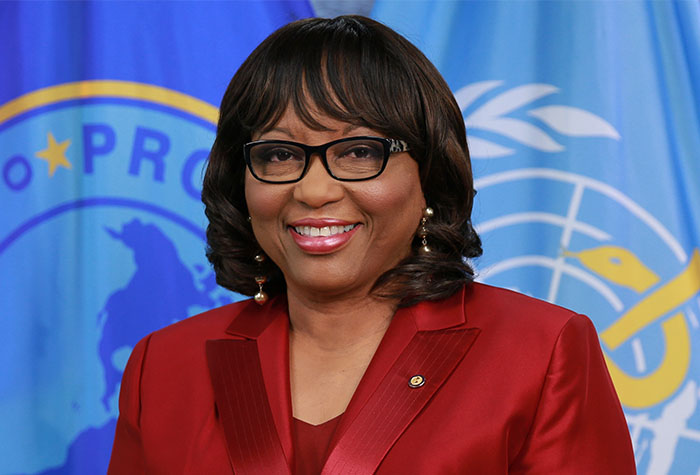COVAX To Start Distributing J&J Vaccines By July
By: , March 18, 2021The Full Story
Countries, including Pan American Health Organization (PAHO) member states, should start receiving doses of the Johnson and Johnson (J&J) vaccine under the COVID-19 Vaccines Global Access (COVAX) facility, by July.
PAHO Director, Dr. Carissa Etienne, said that COVAX has secured more than 100 million doses of the vaccine for 2021 and up to 500 million through 2022.
She was speaking during PAHO’s COVID-19 digital briefing on Wednesday (March 17).
The World Health Organization (WHO) issued an Emergency Use Licence for the one-dose J&J vaccine last week, following similar authorisations for those produced by Pfizer Inc., Moderna and AstraZeneca.
Dr. Etienne said the J&J vaccine was a welcome acquisition against the background of a reported rise in COVID-19 infections and deaths in several countries across the Americas.
“By offering protection with just one dose, the J&J vaccine promises to accelerate vaccination efforts,” she pointed out.
Nearly 400,000 doses of vaccines have been delivered to member countries via COVAX and PAHO’s Revolving Fund facility since last week.
These include 14,400 doses of AstraZeneca vaccines to Jamaica, which arrived in the island on Monday (March 17).
Dr. Etienne said another 728,000 doses are slated to be delivered to five countries, while pointing out that PAHO has, to date, placed orders for more than 3.4 million doses for regional states.
“We recognise that the need for more vaccines, and sooner, is greater in the Americas,” she said, adding that “there is still much work to do”.
“Right now, we have just two vaccine manufacturers that are dispatching millions of doses to dozens of countries around the world… and this is a bottleneck that still prevents us from getting vaccines to every country at the same time. But shipments will become more regular as more doses are available to COVAX in the next few months,” the PAHO Director said.
Dr. Etienne said it is imperative for countries to recognise that doses are limited, “and it will be several months before we can rely on vaccines to control this virus”.
She said that consequent on the reported uptick in COVID-19 cases in some countries “our goal must be to save as many lives as possible by prioritising early doses for those who are at the highest risk of infection”.
These, she pointed out, include healthcare workers who are treating COVID patients, the elderly, and persons with underlying conditions.
Dr. Etienne further underscored the need for countries to continue relying on the public health measures that are known to work in controlling the virus.
“Even those who are vaccinated should continue to practise physical distancing, wearing masks, and avoiding large gatherings,” she advised.
Dr. Etienne maintained that stopping this pandemic “will require that we limit new infections and expand access to vaccines”.


